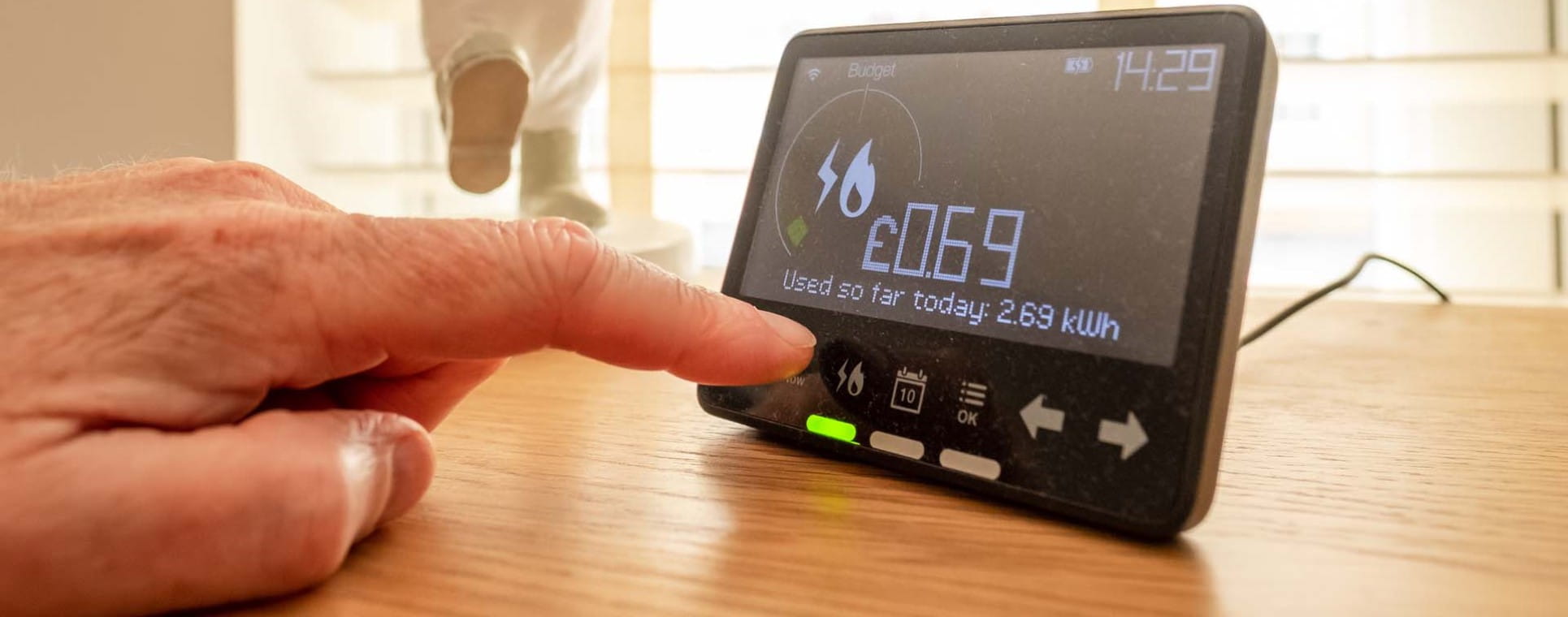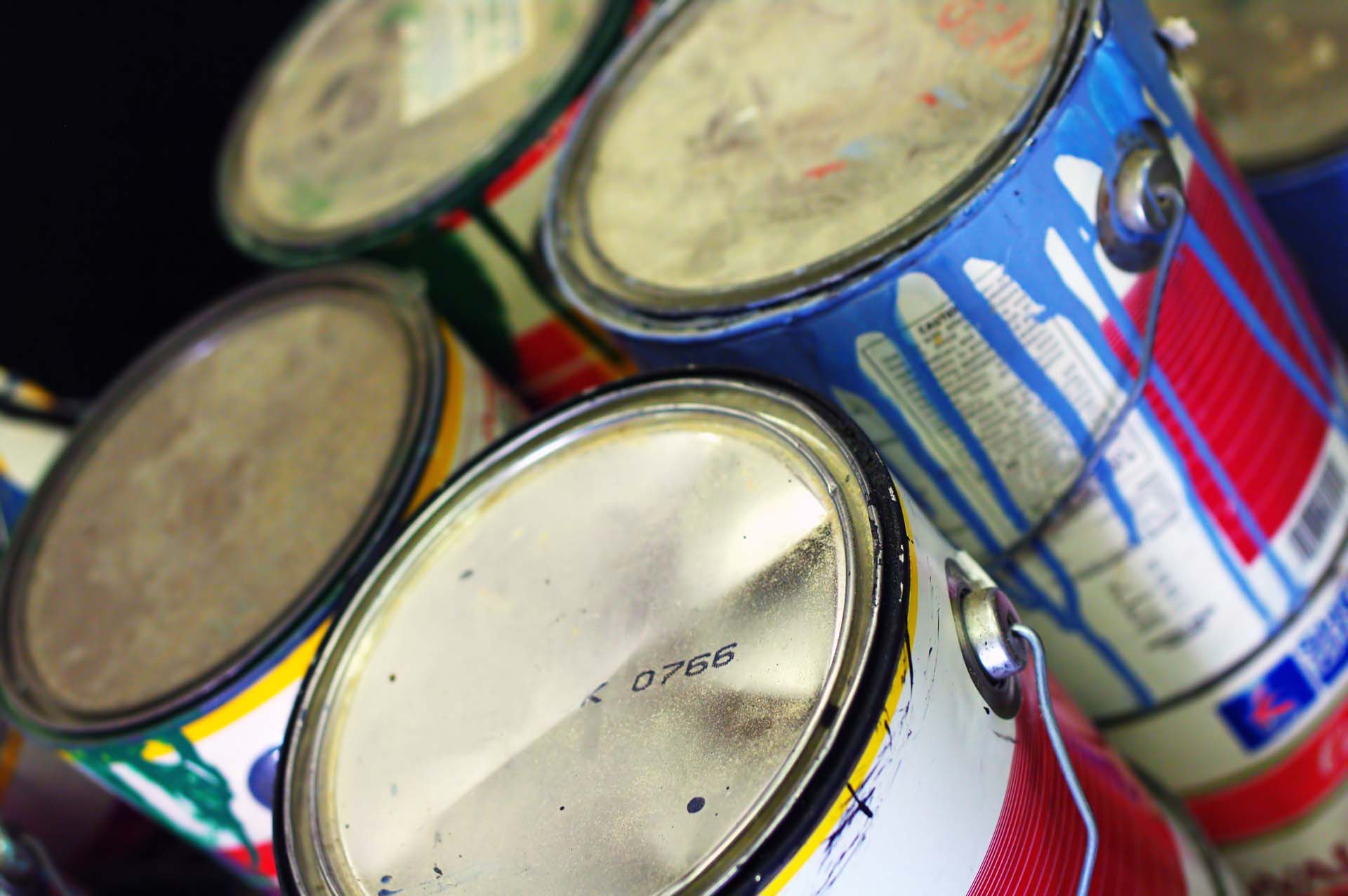
When faced with a pile of dirty dishes, most of us would opt for convenience and choose a dishwasher over washing up by hand. However, with high energy costs and 60% of households in England and Wales on a ‘pay-for-what-you-use’ water meter (Consumer Council for Water), we’re all getting wise to cutting back where we can.
We've investigated using a dishwasher vs washing up by hand, we've done the sums and worked out which is the cheapest when all the costs are taken into account.
How many of us have the option to choose between using a dishwasher and washing up by hand? According to Trend-Monitor, a research organisation that focuses on the home improvement industry, 49% of UK households have a dishwasher.
That figure reduces to 29% for single-person households and increases to 56% for households with children, leaving 51% of households washing up by hand.
Those without a dishwasher cited space as a limiting factor or that they wouldn’t use one.
The amount of water you use depends on how you wash up and which programme you select on your dishwasher.
If you fill the whole sink with soapy suds and keep the tap running while you wash, you’ll use far more water than if your were to half-fill a washing-up bowl and turn off the tap.
Similarly, if you run the dishwasher when it's only half full, your dishes will use more water than if you wait until it's full.
Research by Bonn University in Germany discovered that the most energy-efficient dishwashers with 12 place settings consumed 15 litres of water.
The human testers (113 people from around Europe) used 103 litres of water on average for the same dishes. However, there was a lot of variation, with the most common amount being 40-50 litres and the most economical using 20-30 litres - still more than the dishwashers.
Similarly, Which? research shows that a nine-litre washing-up bowl has the capacity to wash two place settings at most. So the equivalent of washing 12 place settings would be 9 x 6 = a minimum of 54 litres of water.
Which? says that even less-efficient dishwashers show a clear water saving.
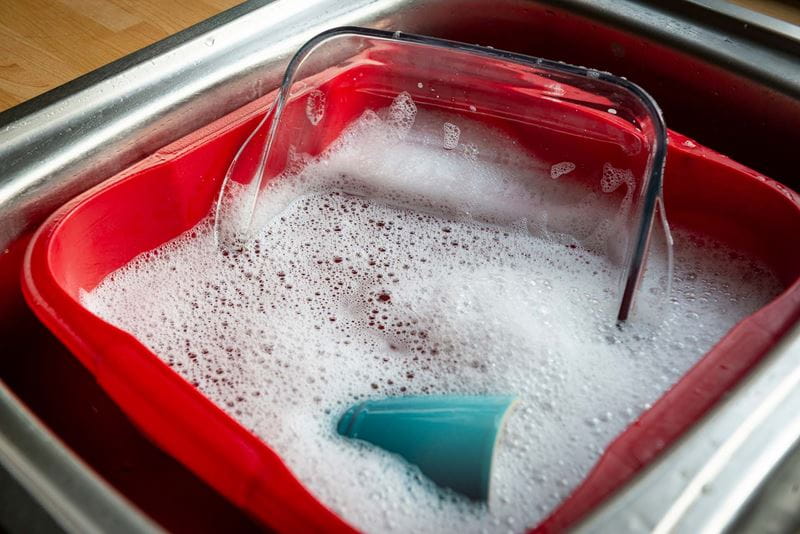
We break down the figures, assuming that we wash up or use the dishwasher five times each week, and each wash would cover 12 place settings.
A place setting is the equivalent of a large dinner plate, a small snack plate, a saucer, a bowl, a coffee cup, a drinking glass, a knife, two teaspoons, a dinner fork and a small salad fork.
* Weekly water usage figures taken from research by Which? and the University of Bonn
** Water costs based on Severn Trent scheme of charges for 2025/2026 at 2.6080 per m3
It's important to regularly clean the spray arms of the machine.
Small particles of food, such as rice, seeds, and sweetcorn, can block the tiny holes that allow water to be distributed during a cycle, leading to poor washing results.
Washing by hand uses far more
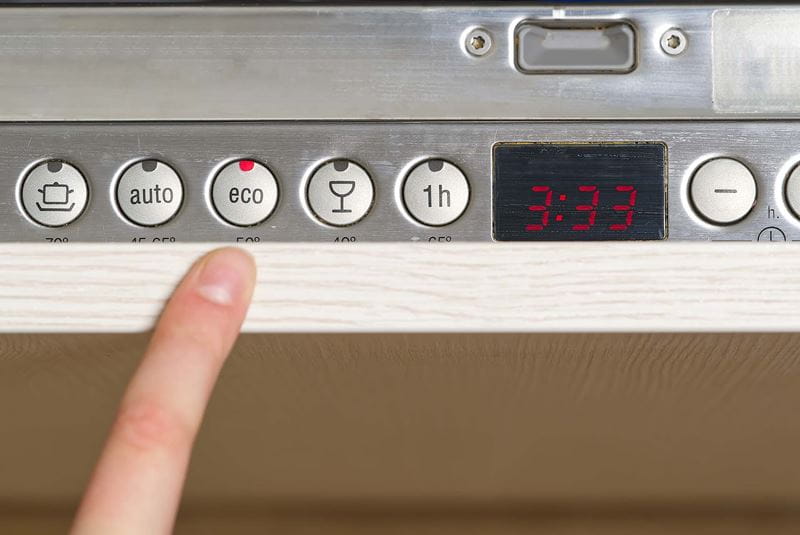
The cost of running your dishwasher will depend largely on the energy efficiency of your appliance. The higher the energy efficiency rating, the cheaper it will be to run and the less water it will consume.
All energy rating labels are based on the performance of an appliance’s ‘eco’ setting, so expect to consume more energy if you choose a different programme. Hide says: “By swapping your normal 60-70°C cycle to the eco setting, you save 30% in electricity and water each time you hit the eco button.”
The energy labels on appliances changed in 2021 from A+++ to G to a simpler A to G rating. The change has made it easier to compare products. If you’re in the market for a new dishwasher and want to know more about the energy rating label, AMDEA has a guide.
Under the current Energy Price Guarantee, most of us are paying 27.03p per kWh for electricity (1 April 2025 - 30 June 2025)
If your dishwasher uses 1.2 kWh per cycle, with your electricity cost at 27.03 pence per kWh (based on the Energy Price Guarantee), you can expect to pay 1.2kWh x 27p = £0.32 per cycle.
*Assuming we heat water from 10 degrees C to 60 degrees C
Although using a dishwasher may appear cheaper than washing up by hand, there is one element that washing by hand doesn’t need; an appliance. And this is where the comparison becomes trickier because of the price of dishwashers varies enormously. The energy and water they consume also vary depending on the machine’s energy rating, with a higher rating being more efficient, and generally more expensive!
While you can certainly buy a dishwasher for around £200 at the cheaper end of the scale you can pay far more with top-end dishwashers retailing for over £1,000. Saga spoke to John Lewis, AO and Currys, who all reported Bosch and Beko to be their bestselling dishwasher brands.
The Beko DIN15X20 at £279 is the best-selling integrated dishwasher at John Lewis, while the Bosch Series 2 SMS26AW08G at £399 is the top freestanding buy at John Lewis and AO. Curry’s customers favour the integrated wi-fi enabled Bosch Series 2 SMV2ITX18G at £469..
If you’re feeling more extravagant and you could try the fully integrated, A-rated Miele G7460 SCVi, but expect to pay around £1,999.
(Figures 19 March 2025).
Taking the average cost of the four best-selling appliances mentioned above, we’ve divided the figure by 11 (the expected lifecycle of a dishwasher is 11 years, according to AMDEA). This gives us the annual cost of the dishwasher purchase.
We can then see that you’d need to make a saving of at least £36.50 a year on your energy and water costs to make using a dishwasher cheaper than washing up by hand.
Washing-up liquid vs dishwasher tablets
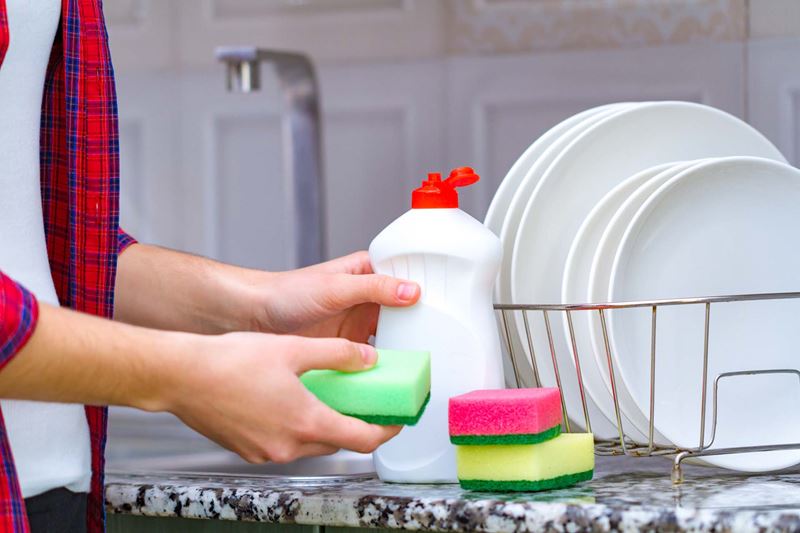
According to Statista, a market data specialist, Fairy Liquid was the number one brand of washing-up liquids and detergents in Great Britain in 2021, with 21.2 million people using the brand. Tesco and Persil followed in second and third place with 4.1 million and 3.2 million users, respectively.
Therefore, for our price comparison, we’re taking the brand leaders to work out the costs of detergent for dishwashers and washing by hand.
* Tesco prices, March 19, 2025
Tesco prices, March 19, 2025
The costs and other benefits, weighed up...
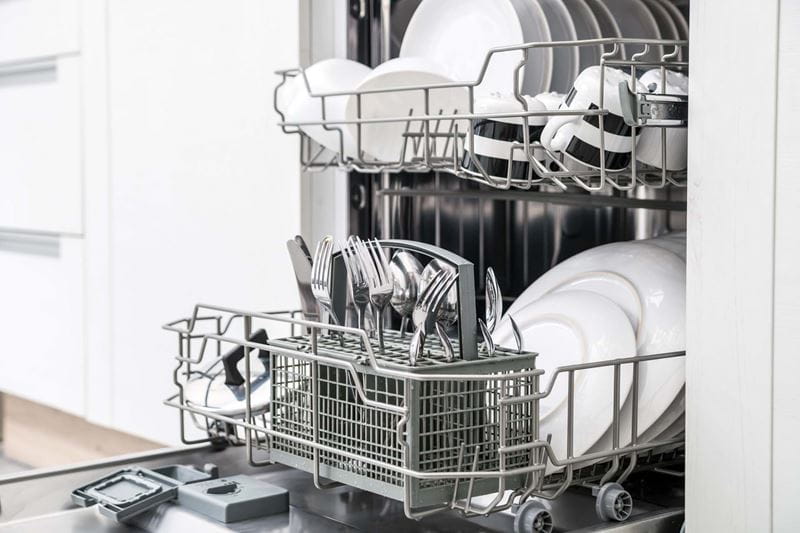
Overall, dishwashers come out on top costs wise vs washing by hand, but figures below are based on several assumptions – including how much water you use when washing up, what dishwasher you buy and how long it lasts.
Annual cost of washing by hand
Annual cost to run an E-rated dishwasher
A dishwasher wins every time if you’re after convenience and have space in your kitchen.
However, dishwashers fall short in terms of the cost of detergent compared to washing up by hand. While water and energy savings are easy to compare, it’s difficult to factor in the cost of an appliance as prices vary widely. If you opt for a very expensive appliance or yours breaks down or needs repairs after a few years, the savings could shrink.
With washing by hand, you can rely on yourself to keep doing the job without needing too many repairs – or a replacement!
But the numbers don't lie – on the face of it and despite extra expenses, all but the most expensive dishwashers are cheaper to use than washing by hand - and could save you more than £100 a year.
With her 30 years of experience, Camilla Sharman has covered a wide range of sectors within the business and consumer industries both as a feature, content, and freelance writer. As a business journalist, Camilla has researched articles for many different sectors from the jewellery industry to finance and tech, charities, and the arts.
View author page



